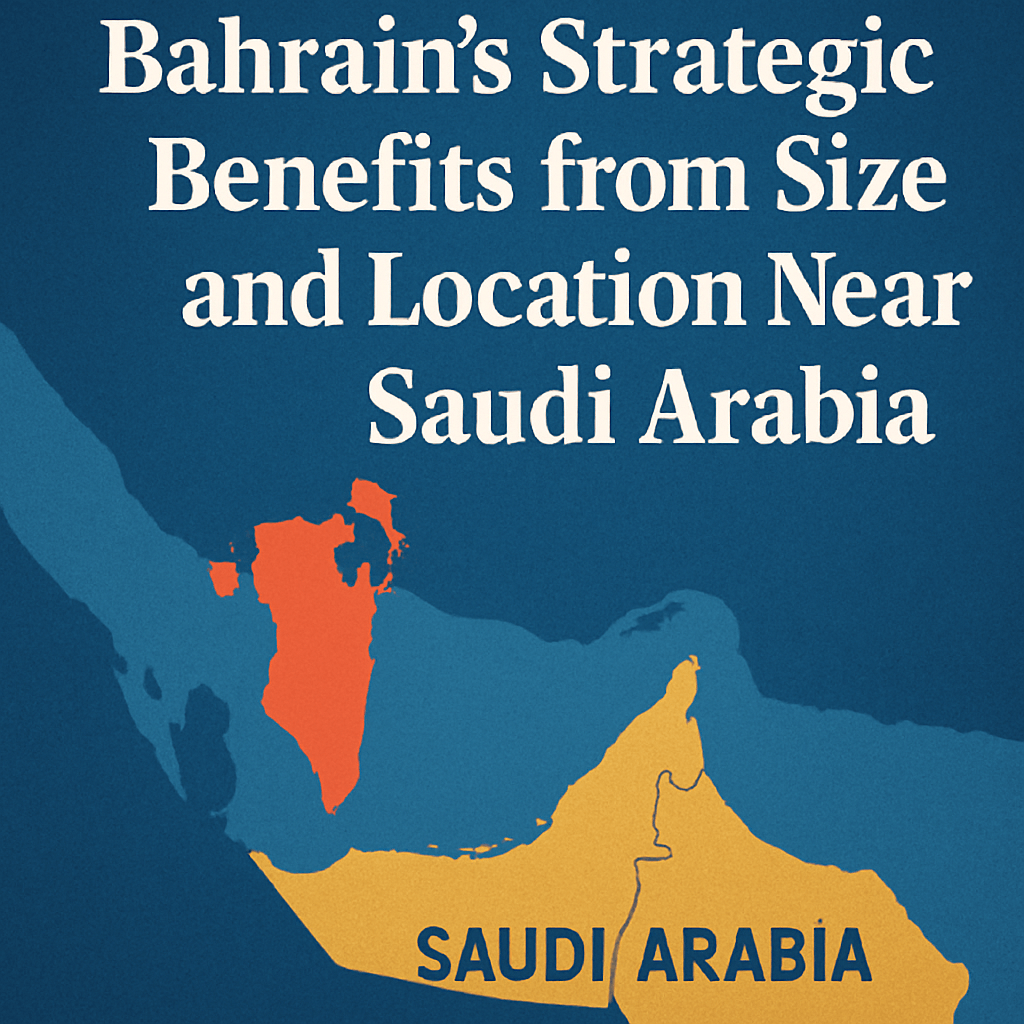Bahrain’s Strategic Benefits from Size and Location Near Saudi Arabia

Bahrain, an island nation in the Persian Gulf, boasts a population of just 1.5 million, making it smaller than many major urban areas worldwide. Its total land area measures approximately 300 square miles, which adds to its unique position in the Gulf Cooperation Council (GCC) region. However, according to Noor Al Khulaif, Bahrain’s Minister of Sustainable Development and CEO of the Bahrain Economic Development Board (EDB), its size presents a series of strategic advantages.
Bahrain as a Testbed for Innovation
Describing Bahrain as a “testing ground for countries in the region,” Al Khulaif highlighted that the nation functions as an ideal site for businesses aiming to enter the GCC market, which includes heavyweights like Saudi Arabia, Kuwait, the UAE, Qatar, and Oman. “You can come and test your idea on a smaller scale, and if it goes wrong, it’s just 1.5 million people—it didn’t really go wrong,” she mentioned at the recent Fortune’s Most Powerful Women summit.
This concept resonates deeply in the context of Bahrain’s growing reputation as a hub for fintech. With its competitive regulatory environment and supportive government initiatives, numerous startups are taking advantage of Bahrain’s unique position to develop and test new technologies. An example of this can be seen with the establishment of the Bahrain FinTech Bay, which serves as an incubator for fintech innovation.
A Unified Approach Towards Economic Transformation
Al Khulaif emphasized that Bahrain’s small size fosters close collaboration between various sectors. “We don’t really talk as government, private sector, and society; there’s a ‘Team Bahrain’ ethos in the country, and we do this collectively.” This synergy is critical in facilitating Bahrain’s shift away from an oil-dependent economy.
“For us, oil is not even the biggest sector in our economy and hasn’t been for the past almost two years. That’s the result of a journey that stretches over decades,” Al Khulaif stated. Over the years, Bahrain has diversified its economy, with financial services now taking the lead, which includes robust subsectors in banking and insurance. Additionally, industries such as manufacturing, logistics, tourism, and technology are gaining traction.
Economic Integration with Saudi Arabia
Bahrain has long maintained strong economic ties with Saudi Arabia, with the two nations connected by the Bahrain-Saudi Arabia Causeway, inaugurated in 1986. This proximity allows Bahrain to act as a complementary service center for its larger neighbor. For instance, as Saudi Arabia invests in manufacturing as part of its Vision 2030 initiative, Bahrain positions itself to provide essential back-office functions and logistical support.
“Our economy and the Saudi economy have been interconnected for many, many years, and we see ourselves as an integral part of the GCC economy,” Al Khulaif noted, suggesting a framework of mutual support and collaboration that may influence economic trends in the region moving forward.
Future Outlook: Trends and Expectations
Given the current trajectory, Bahrain’s focus on diversifying its economic base aligns with broader global trends toward sustainability and innovation. With an increasing number of international corporations seeking to tap into the GCC market, the role of Bahrain as a gateway may strengthen further.
Moreover, recent developments in regulatory frameworks, such as the introduction of a 100% foreign ownership policy in several sectors, illustrate Bahrain’s commitment to attracting foreign direct investment. This strategic move aims to create a more liberalized economy that embraces globalization while protecting local interests.
Conclusion: An Emerging Player in the Gulf
As Bahrain continues to redefine its position within the GCC, its combination of small size, strategic location, and collaborative ethos may pave the way for a robust economic future. The island nation is not only adapting to change; it is setting the stage for transformation in a rapidly evolving regional landscape.
About the Author: Steve Mollman, Contributors Editor at Fortune.